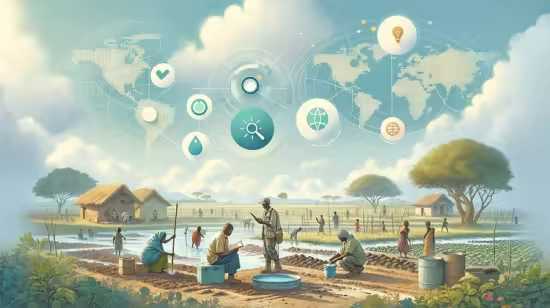
Free Download Udemy - Monitoring, Evaluation, Accountability, and Learning (MEAL)
Published 5/2025
MP4 | Video: h264, 1280x720 | Audio: AAC, 44.1 KHz, 2 Ch
Language: English | Duration: 7h 24m | Size: 6.7 GB
Driving Impact in Humanitarian Projects
What you'll learn
Understand MEAL Fundamentals: Gain a solid grasp of MEAL principles, including their role in tracking progress, ensuring accountability, and promoting learning
Design Monitoring Systems: Learn to create monitoring plans, select indicators, and use data collection tools
Conduct Evaluations: Master the process of planning, designing, and conducting evaluations
Integrate MEAL into Project Cycles: Develop skills to embed MEAL practices at every stage of a project-from design to implementation and closeout
Foster Accountability and Learning: Build expertise in engaging stakeholders
Requirements
Basic familiarity with relief, humanitarian, or development work
Interest in project evaluation and data use
No advanced technical skills required
Description
MEAL is critical for planning, implementing, and evaluating relief, humanitarian, and development projects and programs. It provides a robust framework to track progress, assess impact, ensure accountability, and promote continuous improvement, ensuring your initiatives are transparent, responsive, and sustainable for the communities they serve. These skills help project teams to:Clarify objectives and track progress toward intended results.Make data-driven decisions by aligning monitoring and evaluation efforts with project goals.Adapt and improve strategies through real-time feedback mechanisms.Enhance accountability by involving stakeholders and addressing their concerns.Gain the expertise to:Master MEAL Foundations: Build a strong understanding of MEAL principles and their significance in project success. Develop frameworks to track progress, ensure accountability, and enable adaptive learning.Apply MEAL in Practice: Design monitoring systems, collect and analyze data, and conduct evaluations using real-world examples and best practices. Engage stakeholders in transparent, accountable processes.Integrate MEAL into Projects: Embed MEAL principles at every stage of the project cycle, from design to implementation and closeout, ensuring sustainable and impactful results.Foster Learning and Accountability: Promote a culture of continuous learning within your team, using MEAL insights to refine strategies, improve impact, and encourage stakeholder collaboration.Enroll Now to Transform Your Humanitarian Projects with MEAL Expertise-Gain Practical Tools, Boost Accountability, and Drive Sustainable Impact
Who this course is for
Monitoring and Evaluation Officers: Seeking to strengthen their technical skills in MEAL processes.
Project Managers and Coordinators: Aiming to integrate MEAL principles into their project cycles.
Field Staff and Program Development Teams: Responsible for collecting, analyzing, and using project data to support effective program implementation and evaluation.
Humanitarian, Relief and Development Practitioners
Homepage
Code:
Bitte
Anmelden
oder
Registrieren
um Code Inhalt zu sehen!
Recommend Download Link Hight Speed | Please Say Thanks Keep Topic Live
Code:
Bitte
Anmelden
oder
Registrieren
um Code Inhalt zu sehen!